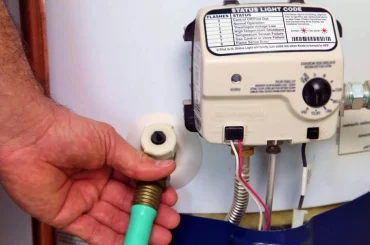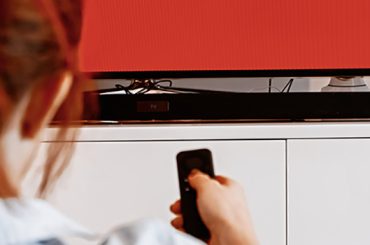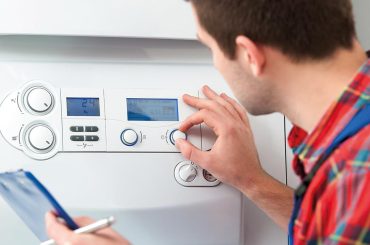Table of Contents
When considering solar panels, one of the main concerns that households tend to have is the cost.
While there are ways of limiting your bill when it comes to the actual installation, there are also steps you can take to reduce your costs in the long-term too.
One such way of avoiding unnecessary costs is ensuring that you get your warranty right. In today’s guide, we’ll explain what to include in your warranty for this very purpose.
Let’s begin!
What is Solar Warranty?
There are two types of solar warranties, those that cover performance and those that cover the actual equipment.
A solar panel performance warranty may guarantee around 90% production after ten years and approximately 80% after 25 years. By production we mean the power output of the panels. Therefore, if your panels were to deteriorate faster than the rates listed under the warranty, you should be covered for a replacement.
Alternatively, if the equipment fails after X amount of time, you’d be covered by the equipment guarantee. This type of warranty usually lasts about 10-12 years.
Notably, though, the average warranty lengths listed in this section can vary significantly for outliers, such as expensive, high-quality solar panels which may come with warranties lasting many decades or even a lifetime.
It’s important to note that a solar warranty is likely only to apply if there are any inherent defects or failed parts in the solar panel setup. In other words, if the panels deteriorate or break down due to damage caused solely by say harsh weather conditions, you will probably not be covered.
With that being said, solar panels are unlikely to rapidly deteriorate before their performance warranty is up or break down entirely before the equipment guarantee is no longer valid. Thus, these warranties still tend to be helpful when needed.
What to Have in a Solar Warranty to Avoid Unnecessary Expenses
Solar warranties can vary quite a bit from brand to brand. That is true not just in terms of the length of the guarantees but also in relation to what they include. Here’s what you should look out for when considering solar warranties.
Comprehensive Product Warranty
A solar system is more than just a collection of solar panels. It also includes features such as the racking, inverter, and any relevant monitoring equipment. Therefore, it’s usually the case that the various equipment comprising a solar array would be covered by different warranties.
However, comprehensive or all-encompassing product warranty is sometimes offered by solar manufacturers. Opting for suitable solar panels within your budget that are covered by an all-encompassing warranty could prevent unnecessary expenses down the line.
Aside from separate warranties creating confusion, if one aspect of your solar system was to break down, it could end up causing issues with the system as a whole.
Having all parts covered by a single guarantee makes it a lot easier to ensure you’d be covered, assuming that the issue(s) arising have emerged due to reasons covered by the guarantee’s terms and conditions (e.g., an inherent defect with a solar panel).
Good Performance Warranty
While performance warranties tend to cover a power output of about 80% after 25 years, there are performance warranties on the market that cover outputs of 90-92% after this amount of time has passed.
Better performance warranties suggest that the product you are purchasing is superior to most but that’s not all. If a performance warranty covers a higher output for longer, it’s more likely to benefit you should something go awry. Therefore, a good performance warranty can also prevent unnecessary costs.
Shipping From House to Servicing Centre and Back is Covered
If you ever need to send an element of your solar system off to be serviced, you should find out whether you would be covered if any damage was incurred during transit or perhaps even at the servicing centre itself.
Full Defective Panel Replacement Coverage
Should your solar array end up with one or more defective solar panels, you’ll want to know whether your solar warranty would cover all expenses related to a replacement or not. For instance, while a solar warranty should cover the full cost of having a new panel installed, it may not cover the packing and shipping of the defective panel.
Ideally, to keep your costs down, a solar warranty should cover the full cost of replacing a defective solar panel and the packing and shipment of the defective panel.
No Monthly Fees
In some cases, solar warranty will involve paying a monthly fee. As a result, you’ll want to look out for these fees and avoid them where possible to keep your overall expenses down.
Making a Claim is Straightforward
Each solar warranty should specify (in its terms and conditions) how you would make a claim. By looking at this fine print, you’ll get a sense as to whether or not it will be easy for you to make a claim. Naturally, the easier making a claim is, the more likely you are to avoid unnecessary costs down the line.
Zero-Deductible Claims
Something else worth looking for in the fine print is whether or not deductibles would apply when making a claim. If you want to avoid unnecessary expenses, try to find a solar warranty that offers zero-deductible claims.
Of course, you don’t want to spend an enormous amount of time parsing through the fine print of solar warranties, however, if you’re looking for extra little ways to lower potential expenses here and there, it’s worth a look.
Company Has Been Vetted by a Third Party
Last but not least, unless you are opting for solar warranties provided by a well-known and renowned company, you may want to verify that the company has been vetted by a third party. This way you can have solace in knowing that your solar warranty provider is a reliable and professional company.
Best Solar Panels on the Market
With many panels available to purchase you may be unsure where to start. However, some solar panels and brands stand out more than others. When considering solar options, it is essential to know what to have in a warranty to avoid unnecessary costs. Blue Raven Solar provides expert guidance on warranty considerations, check here for more information to make an informed decision about your solar investment.
Among the best brands on the market are SunPower, Project Solar, LG and Panasonic. These companies tend to offer solid solar warranties; however, it isn’t always guaranteed that a great solar panel will come with a deserving warranty.
Ultimately, to find the right solar panels for you, you’ll want to weigh factors up such as your budget, your preferences and what you expect from the warranties. By looking out for the items listed today, you’ll be able to limit the odds of paying unnecessary expenses over time.





